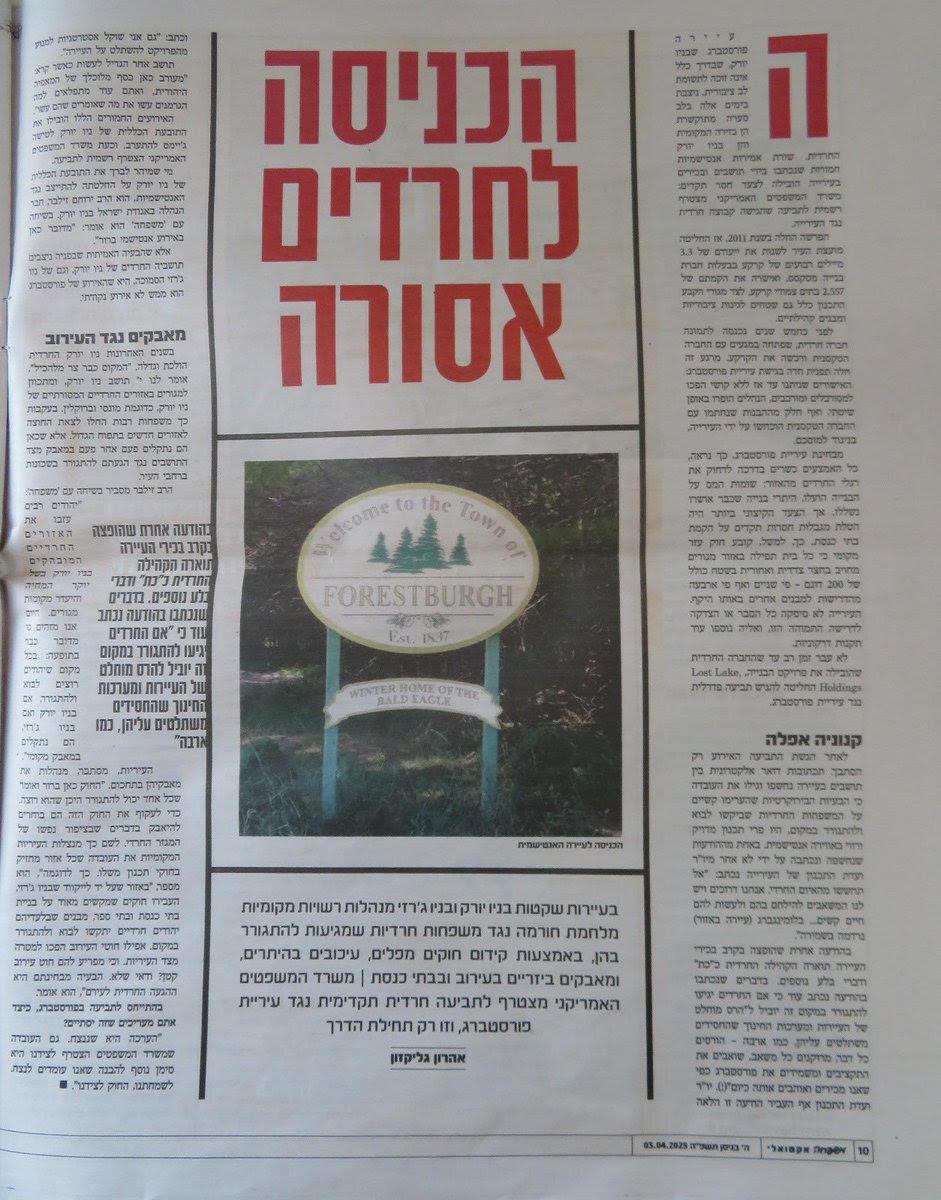New York and New Jersey Towns Fight Ultra-Orthodox Growth
"No Entry for Haredim," shocking anti-Semitism revealed across the U.S as towns seek to 'restrict' religious populations
Municipalities in New York and New Jersey, home to the largest Haredi Jewish populations in the U.S., are resisting their growth by imposing restrictions on synagogue construction and opposing eruv wires, according to a Mishpacha newspaper report. This pushback highlights tensions between the ultra-Orthodox community’s expansion and local authorities, raising questions about cultural clashes and potential discrimination in these regions.

Journalist uncovers "No Entry for Haredim" a disturbing trend in New York and New Jersey. The newspaper 'Mishpacha' reports that municipalities across these two states, home to the majority of the Haredi population in the U.S., are fighting against the influx of Haredim into their areas. As part of their efforts to resist the Haredi community, these municipalities are imposing restrictions on the construction of synagogues and even opposing the installation of eruv wires.
A troubling pattern is emerging in parts of New York and New Jersey, where local governments are pushing back against the growing presence of Haredi Jewish communities, according to a recent report by the newspaper 'Mishpacha'. These two states house the largest concentration of Haredim and ultra-Orthodox Jews in the United States, yet some municipalities are taking aggressive steps to limit their expansion. The resistance isn’t subtle: city councils are slapping restrictions on building new synagogues and even challenging the setup of eruv wires, those thin boundary lines that allow observant Jews to carry items on Shabbat within designated areas.
The 'Mishpacha' piece paints a picture of escalating tension between Haredi residents and local authorities. For years, these communities have been drawn to places like Lakewood, Monsey, and Brooklyn for their tight-knit religious networks and access to Jewish infrastructure. But as their numbers swell, some towns are digging in their heels, seemingly wary of how the influx might shift local demographics or strain resources. Synagogues, central to Haredi life, are a prime target, permits get delayed or denied outright. The eruv battles are especially striking, given how low key these wires are; they’re often strung on existing poles, yet they’ve become a flashpoint in this quiet war.
What’s driving this? The article doesn’t speculate much, but it’s hard to ignore the undertones of cultural friction. Haredim tend to live distinctly, large families, insular schools, strict religious observance, which can clash with the vibe of more secular or mixed neighborhoods. Still, the pushback raises questions about fairness and freedom. Are these municipalities protecting their character, or crossing into discrimination? For now, the Haredi community faces an uphill climb in these areas, caught between their need for space and a growing wall of resistance. The story’s still unfolding, and it’s one worth watching.